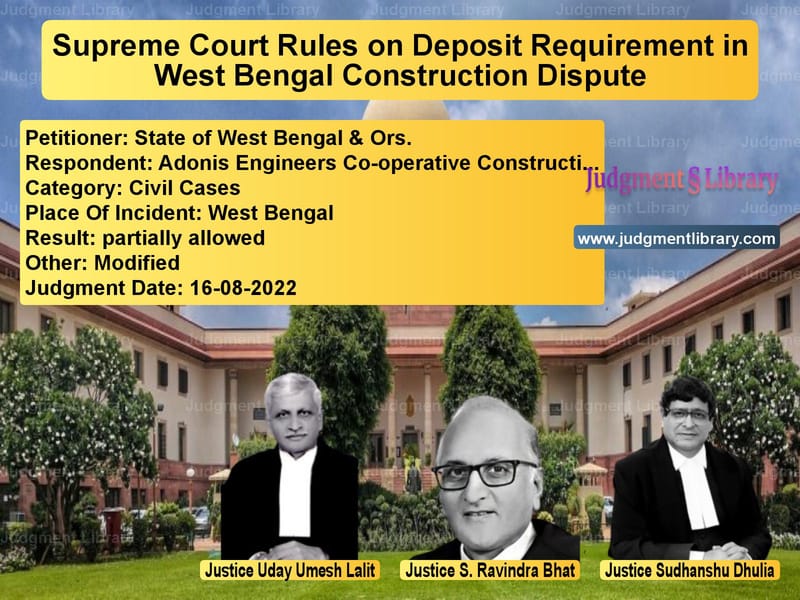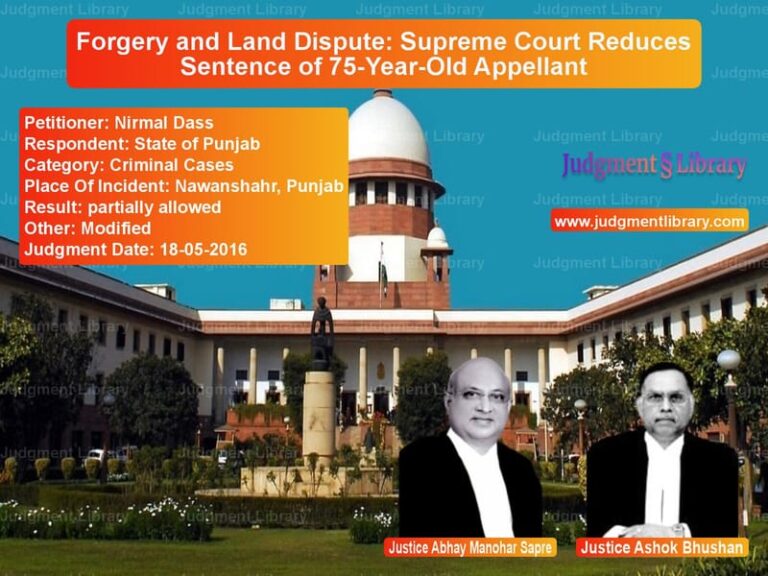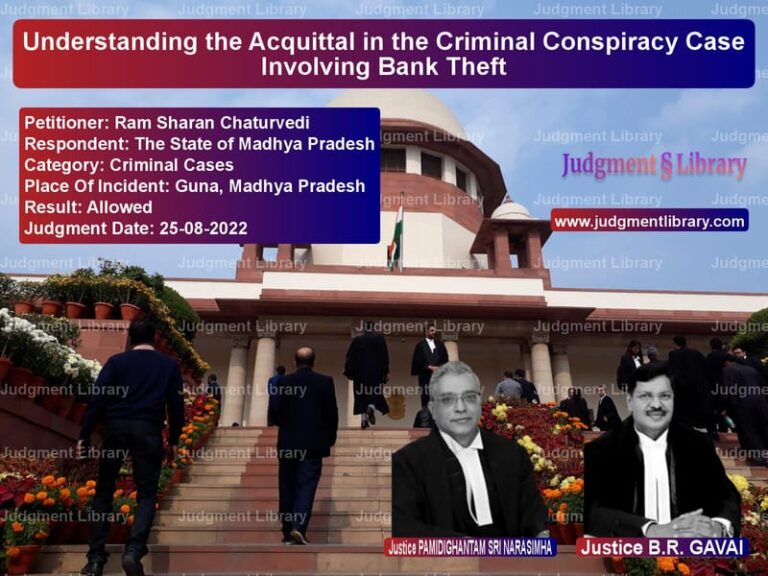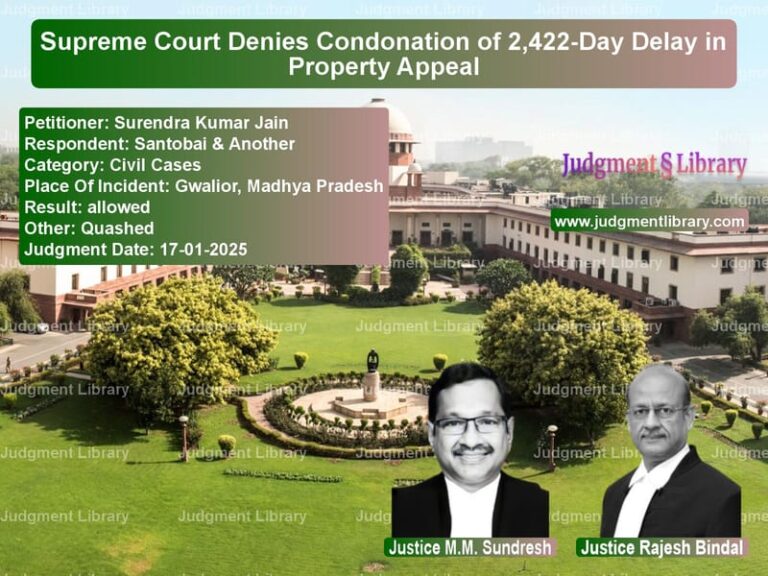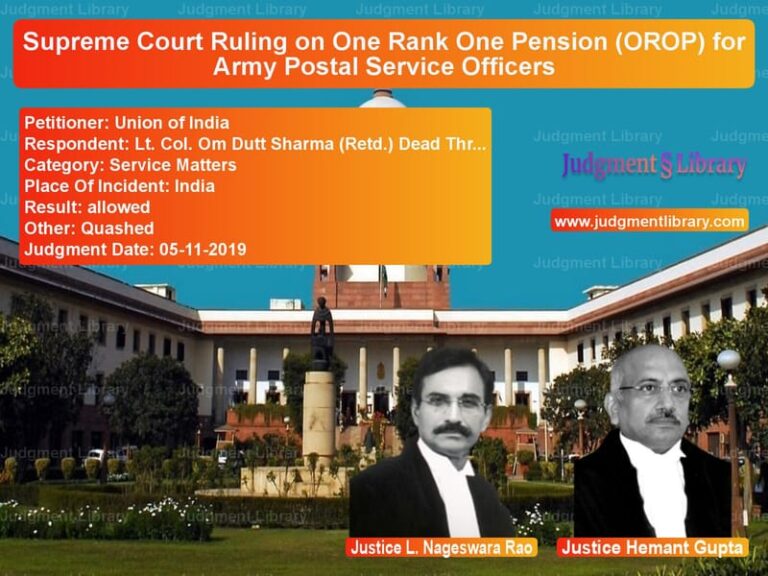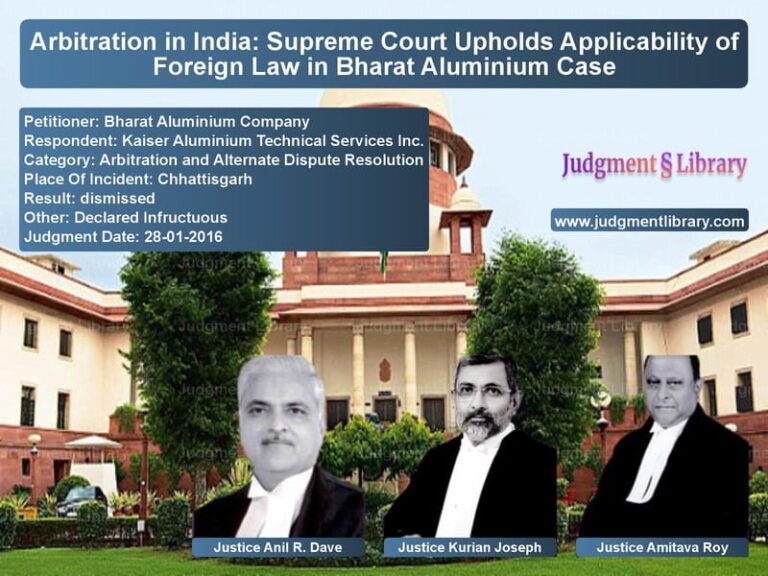Supreme Court Rules on Deposit Requirement in West Bengal Construction Dispute
The Supreme Court of India recently ruled on a financial dispute between the State of West Bengal and Adonis Engineers Co-operative Construction Society Limited. The judgment clarified the extent to which a pre-deposit requirement applies in an appeal against a monetary decree.
Background of the Case
The case stemmed from a contractual dispute in which Adonis Engineers Co-operative Construction Society Limited (the respondent) had obtained a decree against the State of West Bengal (the appellant) for an amount with accrued interest. The dispute revolved around construction services rendered by the respondent to the government. Upon obtaining a decree in their favor, Adonis Engineers sought enforcement of the judgment.
Read also: https://judgmentlibrary.com/supreme-court-modifies-refund-order-in-nagpur-real-estate-dispute/
The State of West Bengal challenged the decree in an appeal before the Calcutta High Court. The High Court issued an order requiring the state government to deposit the entire decretal amount with interest before proceeding with the appeal. Dissatisfied with this requirement, the government approached the Supreme Court, arguing that a partial deposit should suffice.
Arguments Before the Supreme Court
Petitioners’ Arguments (State of West Bengal)
- The petitioners contended that the requirement to deposit the entire decretal amount imposed an excessive financial burden on the state government.
- They proposed that a deposit of ₹45,00,000 should be deemed sufficient compliance.
- The petitioners requested the Supreme Court to modify the High Court’s order, allowing the appeal to proceed without requiring full deposit of the sum in dispute.
Respondents’ Arguments (Adonis Engineers Co-operative Construction Society Limited)
- The respondents argued that the High Court’s direction was legally justified as it ensured that the appellant did not evade payment obligations while continuing litigation.
- They asserted that requiring the full deposit was necessary to prevent delay tactics in executing the decree.
- The respondents contended that partial deposit would not sufficiently safeguard their interests, as there was a risk of non-recovery if the state lost the appeal.
Supreme Court’s Observations
The Supreme Court analyzed the legal necessity of pre-deposits in monetary decree cases. The Court emphasized that requiring a deposit aims to balance the interests of the decree-holder while ensuring the appellant has fair access to appellate proceedings.
“The requirement of deposit in monetary decree appeals should be imposed in a manner that does not create undue hardship on the appellant while securing the decree-holder’s rights.”
The Court also considered whether the deposit amount mandated by the High Court was proportional to the financial capacity of the appellant and whether it ensured a fair hearing of the case.
“Given the financial position of the State and the existing deposit of ₹45,00,000, a complete deposit of the entire decretal amount with interest would not be justified.”
Supreme Court’s Verdict
The Supreme Court ruled in favor of modifying the High Court’s directive. The key aspects of the ruling include:
- The deposit requirement was reduced to ₹45,00,000, which was already deposited.
- The pending appeal (FAT No.500 of 2017) before the High Court must be taken up for hearing within three months.
- The decision was limited to the pre-deposit requirement, leaving all other issues open for adjudication before the High Court.
Impact of the Judgment
This ruling clarifies the principles governing pre-deposit requirements in monetary decree appeals:
- It reinforces that appellate courts have discretion to modify deposit requirements to avoid financial hardship.
- It ensures that pre-deposits do not become an obstacle to the right of appeal.
- It balances the need to secure decree-holders’ interests while preventing excessive burden on appellants.
The judgment provides an important precedent for similar cases where monetary decrees are challenged, ensuring that deposit requirements remain fair and reasonable.
Petitioner Name: State of West Bengal & Ors..Respondent Name: Adonis Engineers Co-operative Construction Society Limited.Judgment By: Justice Uday Umesh Lalit, Justice S. Ravindra Bhat, Justice Sudhanshu Dhulia.Place Of Incident: West Bengal.Judgment Date: 16-08-2022.
Don’t miss out on the full details! Download the complete judgment in PDF format below and gain valuable insights instantly!
Download Judgment: state-of-west-bengal-vs-adonis-engineers-co-supreme-court-of-india-judgment-dated-16-08-2022.pdf
Directly Download Judgment: Directly download this Judgment
See all petitions in Contract Disputes
See all petitions in Damages and Compensation
See all petitions in Judgment by Uday Umesh Lalit
See all petitions in Judgment by S Ravindra Bhat
See all petitions in Judgment by Sudhanshu Dhulia
See all petitions in partially allowed
See all petitions in Modified
See all petitions in supreme court of India judgments August 2022
See all petitions in 2022 judgments
See all posts in Civil Cases Category
See all allowed petitions in Civil Cases Category
See all Dismissed petitions in Civil Cases Category
See all partially allowed petitions in Civil Cases Category

